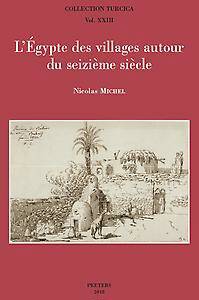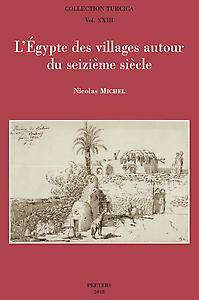
- Afhalen na 1 uur in een winkel met voorraad
- Gratis thuislevering in België vanaf € 30
- Ruim aanbod met 7 miljoen producten
- Afhalen na 1 uur in een winkel met voorraad
- Gratis thuislevering in België vanaf € 30
- Ruim aanbod met 7 miljoen producten
Zoeken
Omschrijving
This book aims at studying the history of Islamic Egypt during a little-known time period (the 16th century) through the lens of its rural world, an even lesser-known reality. Following their conquest of Egypt in 1517, the Ottomans developed a lasting concern for the countryside, as it represented a major source of state income. Their attempt to assess and harness its resources brought about an exceptional set of archival records, part of which remain extant to date. These archives retain information on land regimes and fiscal organisation as well as shedding light on the distribution of power and authority within rural societies. Despite giving evidence on the wide-ranging autonomy that local peasant communities could enjoy, such records still impart uniformity to highly diverse and unequal societies. Studying 16th-century Egypt in this way is thus insightful to understand its former Mamluk history as well as its evolutions to come during Ottoman times.
Specificaties
Betrokkenen
- Auteur(s):
- Uitgeverij:
Inhoud
- Aantal bladzijden:
- 528
- Taal:
- Frans
- Reeks:
- Reeksnummer:
- nr. 23
Eigenschappen
- Productcode (EAN):
- 9789042934795
- Verschijningsdatum:
- 17/08/2018
- Uitvoering:
- Paperback
- Formaat:
- Trade paperback (VS)
- Afmetingen:
- 160 mm x 239 mm
- Gewicht:
- 938 g

Alleen bij Standaard Boekhandel
+ 168 punten op je klantenkaart van Standaard Boekhandel
Beoordelingen
We publiceren alleen reviews die voldoen aan de voorwaarden voor reviews. Bekijk onze voorwaarden voor reviews.







